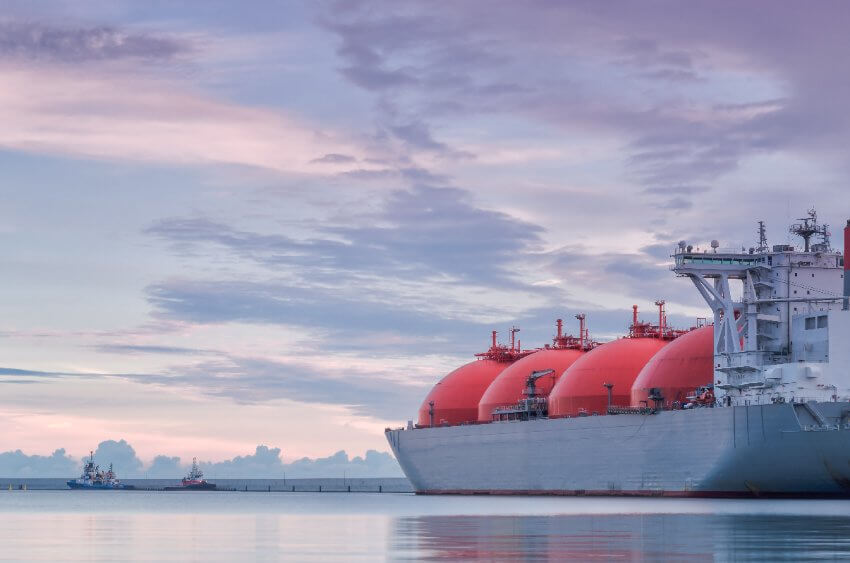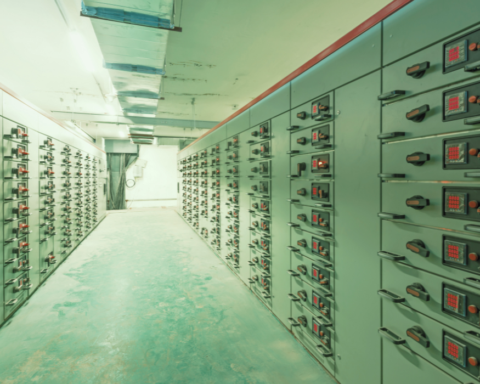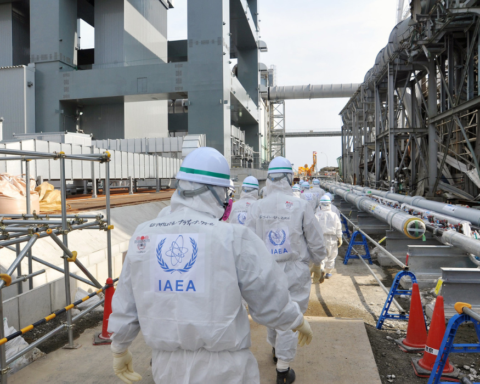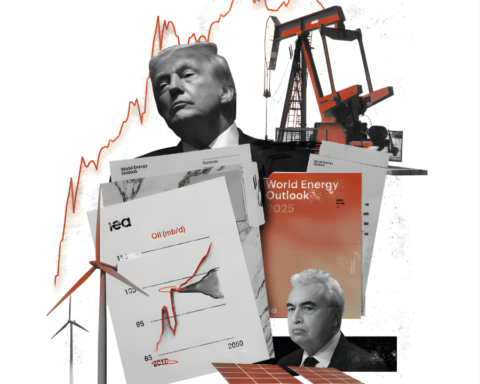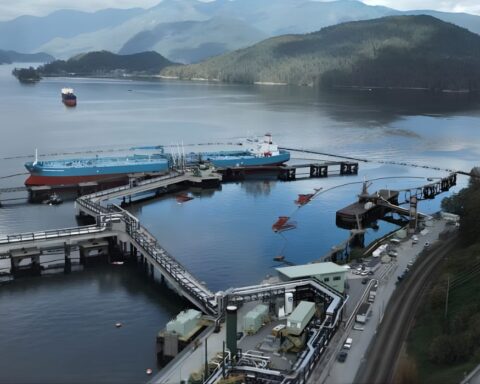Prospects for a liquefied natural gas (LNG) export deal from Canada to Germany are close to evaporating as German Chancellor Olaf Scholz prepares for a visit to Montreal, Toronto, and Stephenville, Newfoundland August 21-23, according to The Energy Mix.
For months, Canadian fossils have been touting the possibility of shipping LNG to Germany to help the country cope with an energy supply crisis brought on by Russia’s war in Ukraine. Public speculation and behind-the-scenes lobbying have focused on three possible export terminals: Repsol SA’s Saint John LNG plant in New Brunswick, Pieridae Energy’s on-again, off-again scheme for a new export terminal at Goldboro, Nova Scotia, and far less likely, the C$14-billion Énergie Saguenay project that was soundly rejected by the Innu Nation and the Quebec government last July.
But none of those projects appears to have made the cut when Germany announced the chancellor’s itinerary for his Canadian tour. The words “liquefied” and “LNG” did not appear in a Saturday story in the Globe and Mail that had Trudeau and Scholz inking a deal “to jointly explore the production of hydrogen fuel in Canada for export to Germany.” Scholz’ stop in Stephenville for a hydrogen trade show will bring him close to the site of the proposed one-gigawatt, 164-turbine Port au Port wind farm, which would be linked to a 500-megawatt hydrogen and ammonia plant at the port of Stephenville.
Nor did LNG rate a mention in an announcement Saturday from the Prime Minister’s Office in Ottawa.
In addition to discussing peace and security in Europe, the two leaders will “continue collaboration on ways the two countries can work together to safeguard energy security, and accelerate the global transition to clean energy, including through secure access to key resources like clean hydrogen and critical minerals,” the PMO said. “They will discuss taking strong climate action through policies like pollution pricing” and talk about “bolstering science and innovation relations, and attracting investments, including in sectors like automotive and electric vehicle manufacturing, hydrogen and clean energy, and bio manufacturing and life sciences.”
Aversion to LNG
The growing emphasis on hydrogen is the result of continuing discussions between the two countries, and at least partly a reflection of a strong aversion to LNG on the part of a key partner in Scholz’ three-way coalition government, the German Green Party, a senior Canadian government source told The Mix. The push for LNG in both governments continues, but even if it succeeds, the Repsol plant—a facility that already exists, and would not likely need new permits or public hearings to retool its operations—is the only one that has a credible chance of proceeding.
Even then, there are serious questions about whether Repsol could convert its St. John facility for export in time to help Germany address a short-term gas shortage when the country is also committed (and legally bound) to rapidly drive down its greenhouse gas emissions.
In April, 2021, Germany’s Constitutional Court declared that the country’s 2030 emission reduction targets were insufficient, lacking in detail, and therefore violated the fundamental rights of citizens—including the nine youth climate campaigners who originally launched the case. A week later, then-finance minister Scholz announced a 65% emissions reduction target for 2030 and a 2045 deadline to bring emissions to net-zero.
For months, that fast timing has raised serious questions about any Canadian LNG exports to Germany. “If the typical offtake agreement in the LNG business is 20 years, and we want to be out of gas in 2045, there is not so much time for any of these projects to come online unless you find some other creative solution,” Gerhard Schlaudraff, deputy head of mission at the German embassy in Ottawa, told The Mix in May.
“Opening a new LNG export facility in five years would be irrelevant to the current energy crisis in Europe,” added Brian O’Callaghan, lead researcher and project manager at the UK’s Oxford Economic Recovery Project, in an early July release from the Sierra Club of Canada Foundation and the Council of Canadians. “Building a new LNG export facility in Canada sounds like an enormous stranded asset in the making.”
While Canada’s fossil sector is keen to set up export deals with Europe, Pierre-Olivier Pineau, a professor at Montreal’s HEC business school, said companies will need guarantees before investing in new infrastructure to make those deals happen.
“I’ve never heard Germany saying… ‘We are willing to sign a purchase contract for the next 20 years,’ so that it secures all the financial aspects of the project,” Pineau told CBC yesterday.
Canadian Natural Resources Minister Jonathan Wilkinson ruled out public subsidies for East Coast LNG projects in early July.
Green Means Green
A parallel conversation has been going on around the production process for any hydrogen that Canada exports to Germany. Today, Canadian hydrogen is mostly derived from fossil gas, so it’s labelled “blue” hydrogen if the resulting emissions are captured and stored or earns the dreaded “grey” designation if the carbon and methane pollution is simply released into the atmosphere. A project like the Port au Port wind farm would produce “green” hydrogen, and it wouldn’t need an eastbound pipeline from British Columbia, Alberta, or Saskatchewan to get the product to an export terminal.
Green hydrogen is also the only formulation that Germany would likely accept, Schlaudraff told The Mix in May.
“When we say hydrogen, we mean ‘green’ hydrogen,” he said. “The Canadian side, for very good reason, prefers to talk about ‘clean’ hydrogen. The situation in Canada is different, and we appreciate that. But the German funding instruments for the hydrogen economy are all geared toward green hydrogen,” and “if you look at the opportunities for Canada to export hydrogen to Europe, it is simply green hydrogen made from water and electrolysis, because of the huge potential of renewables in Canada.”
Canada’s Duty
On a trip to St. John earlier this month, Deputy Prime Minister Chrystia Freeland lent general support to the idea that Canada should try to ship out its share of the fossil energy Europe needs.
“I do think that energy security today, more than ever, is a question of security full-stop, and Canada’s really lucky,” she said, after a reporter asked whether Canada should be doing more to export LNG. “We have a lot of energy. I think it is a political responsibility for us as a country to support our allies with energy security.”
But despite “a very tough moment for many European countries right now,” she declined to endorse the Repsol plant in St. John as an export opportunity. “I think this is not the moment to pick specific projects,” Freeland said.
And while Enbridge Inc. CEO Al Monaco is urging Ottawa not to squander a “second chance” to enter the global LNG market, other factors are lining up against a rapid gas buildout. The new green finance taxonomy adopted in early July by the European Union sets an emissions standard that will be tough for gas to meet, analysts at Rystad Energy concluded later in the month.
Meanwhile, public opinion on both sides of the Atlantic appears to be solidifying in ways that would make a major LNG deal a tougher political sell. In Canada, a mid-July Léger poll for Clean Prosperity concluded that the majority of voters expect elected officials to deliver on credible climate plans despite high inflation. And CBC says an estimated 6,000 people from across Europe have joined a festival-like protest camp in Hamburg, Germany, arguing that the “climate suicide” of LNG is no solution to Germany’s energy crisis.
This article is republished from The Energy Mix. Read the original article.


